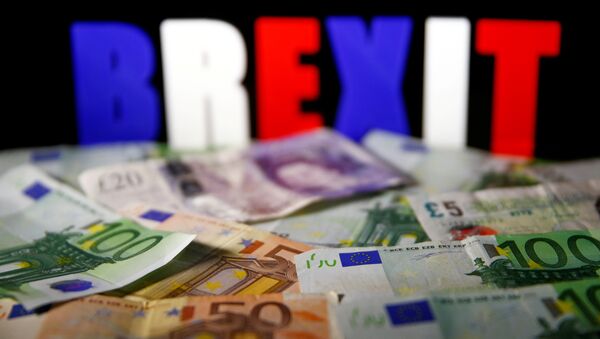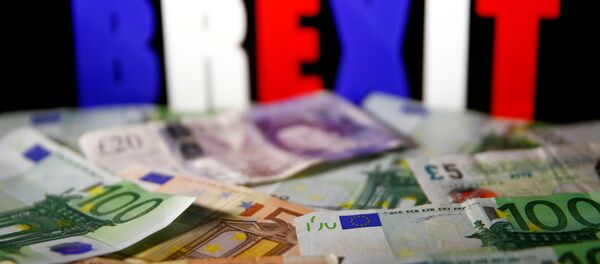Meanwhile, as Brexit negotiations with the EU continue, the British economy is facing a longer period of uncertainty and subdued economic growth.
The UK-EU negotiations over the Brexit process have resumed this week amidst the rising scepticism of Britain’s economic prospects, hardly adding to the UK’s investment appeal. Whilst the mechanics of Brexit still remain unclear, as the framework of the divorce process will remain in the works for months ahead, the UK economic growth is expected to slow.
The Albion might, however, defy the gloomy projections yet another time, as it happened with the unexpected economic acceleration that immediately entailed the Brexit vote last year.
“Both sides (the UK and the EU) have today got round the table and started the serious business of working through our positions in a number of areas. We recognize that this will be a complicated and technical process,” the UK Department for Exiting the EU said in a statement on Monday.
Higher economic uncertainty surrounding the tumultuous Brexit process is poised to affect UK economic growth, as higher inflation and lower consumer confidence might slash percentage points off the UK’s GDP, while lower investment activity could restrain the UK’s productive forces.
Yet, according to the most recent batch of data from the Office for National Statistics (ONS), UK inflation dropped to 2.6 percent in June from a four-year high of 2.9 percent the previous month. Such a development came unexpectedly, as the price index was forecast to remain flat, and was the first decline in UK inflation since October.
The decline in inflation took some pressure off the Bank of England (BOE), which had considered an increase in base borrowing costs to 0.5 percent from the current 0.25 percent to contain the price index that seemed to be spiralling out of control. A central bank rate hike would impair economic growth, meaning the slowdown in inflation comes in handy amidst the heightened economic uncertainty in the UK.
The BOE inflation target is 2 percent, albeit the current inflation is still above target, the central bank can afford to protract on monetary policy adjustment and collect additional data on GDP growth in order to fine-tune further policy moves.
“Brexit-related uncertainty may hold back business investment, but this should be partly offset by planned rises in public investment,” John Hawksworth of PwC said. “Fiscal policy could also be further relaxed in the 2017 Autumn Budget to offset the ongoing real squeeze on household spending power.”
Even though PwC expects the UK economy to slow down this and the following year, the expected stimulus of the fiscal side might provide an additional boost to the services sector, whilst the British manufacturing sector has been doing fairly well since the Brexit vote.
Meanwhile, US salaries and wages advanced by 0.7 percent year-on-year in the second quarter or 0.5 percent excluding bonuses. Compared against the above-2-percent rise in inflation during the same period, the squeeze in household purchasing power is self-evident. Fiscal policy measures to be outlined in the autumn budget will therefore be aimed at offsetting this hazardous discrepancy between household incomes and expenditures.
However, broader macro data are hardly as murky as the PwC economic forecast. Factory import prices fell 0.2 percent in June month-on-month and decreased to 9.9 percent year-on-year compared to 12.3 percent in May. Lower input costs would mean higher profitability in the manufacturing sector, which, compared to a resurgence in UK exports, provides a solid backdrop for the GDP expansion.
The BOE, meanwhile, will announce their policy decision on August 3. In June, the central bank monetary policy board almost raised rates, but held them steady by a 5-3 vote. Amidst the slower GDP growth, at 0.2 percent quarter-on-quarter in the first three months of this year, a hike in interest rates would require higher budget spending to support the economy.
The BOE Governor Mark Carney said consumer spending data would determine the path of monetary policy adjustment in the near term. Should UK consumers increase spending, the rates might go up as economic outlook would brighten, but there is too much uncertainty at this point to even consider monetary policy adjustments. Under the current circumstances, the BOE in likely to keep rates unchanged on August 3, waiting for more data and the autumn budget announcement and its perceived effects to the economy.







